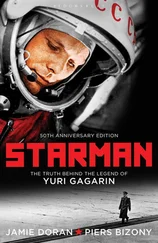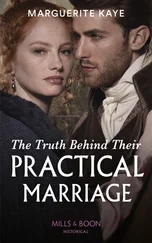There was a lot of talk about Joss being ‘very much AC/DC’ while at Eton. 59 These rumours were strongly denied by his brother Gilbert and his son-in-law Sir Iain Moncreiffe. By 1916 Joss had already been a member of the Eton College Officer Training Corps for a year, where apparently there were always ‘a lot of tents heaving on the job. One young and popular boy charged £3.00 per go.’ At school he was great friends with Fabian Wallis, who was then openly homosexual, a friendship that resumed in Kenya. 60 Flirting with the boys down Keate’s Lane does demonstrate his tendency at least outwardly to defy sexual conventions. He was of course attractive to women, but even those who had slept with him described him as ‘a pretty-looking man’, accepting that he might have been bisexual. As one admirer put it, ‘Etonians had a certain reputation. There was something feminine about Joss, which one could not ignore.’ 61
Joss’s initiation into heterosexual sex began at fifteen: in the Michaelmas half of 1916 he was caught in flagrante delicto with a maid, a woman old enough to be his mother. He had obviously confided in his great friend Hubert Buxton, but naturally the latter never elaborated beyond the fact that ‘Joss had been sent down for being a very naughty boy indeed’; he added wistfully that Joss had been ‘so attractive and so smart’, implying that he only wished that he too had had the guts and ingenuity to get himself into bed with a woman at so tender an age. 62
If his peers admired his seduction skills, the authorities at Eton did not. Usual punishment procedure was followed while the decision to ‘sack’ (expel) Joss was being made. While routine offences were dealt with in the headmaster’s and lower master’s ‘bill’, and floggings were recorded in a book open only to masters, more serious matters such as stealing or sexual misdemeanours were noted in separate confidential books. Because Joss’s offence was sexual and therefore considered to be serious, the beating was to be carried out in private. A praepostor (a senior boy) extracted Joss from class. Ritual prevailed.
‘Is there a Mr Hay in the Division?’
‘There is.’
‘He is to report to the head master in lower school after 12.’
Did Joss blanch? Probably not. It was not in his nature. Nor was it in his nature to blush. Just after Lupton’s Tower chimed midday, two praepostors accompanied ‘Mr Hay’ from the twenty-eighth division to the headmaster Dr Edward Lyttleton’s schoolroom; Lyttleton had found homosexuality so prevalent in 1915 that he had denounced the practice openly. (He left Eton soon after Joss.) 63 Dressed in a clergyman’s cassock and accompanied by the head porter, carrying a birch rod in solemn procession, Lyttleton now ordered Joss to take down his trousers and underwear and to bend over the flogging block. After reciting his offence and outlining his punishment, six strokes of the birch rod, complete with twigs and leaves, were administered. It was bad form to cry. After Joss rose from the flogging block, Lyttleton presented him with the object that had given him his painfully wealed skin. 64
We do not know if Joss’s parents hastened back from Le Havre to England on account of his dismissal. As a result of his fall from grace, however, poor Gilbert’s name was withdrawn from Eton. He was educated at Cheltenham College and Cambridge instead.
Quite apart from the thorough disgrace Joss would have been made to feel over his dismissal from Eton, he had already endured a rotten few months before being caught with the maid. Worsening an already insecure situation for Joss and his siblings, Slains, along with Longhaven House which belonged to its estate – Joss’s rightful inheritance – had been sold off to Sir John Reeves Ellerman, who would dispose of these dwellings without even occupying them, a callous blow to the Erroll family. 65 Eliza Gore, their great-grandmother, also died that year in the Royal Cottage at Kew, leaving only Sir Francis Grant’s painting as a reminder of her spirit and of the adventures that her descendants had heard from her own lips. Grant’s portrait has her standing by her grey Arab pony, a gift from the Sultan of Turkey, ever reminding them that on this steed Eliza Gore had followed her husband without complaint throughout the Crimean campaign. 66
With Eliza Gore’s passing and the loss of Slains, all in one swoop Joss’s childhood had disappeared. The ruins of both Old and New Slains still stand today, there to be looked upon by his great-grandchildren even though fierce winds have torn away the last traces of plaster. They can hear the same cries from sea-birds, the echoes of gulls and puffins, swooping and screaming through the castles’ once proud corridors.
*Plant badges were symbols used to distinguish clans.
*Later the Duke of Portland.
*Eton does not forget.
‘Come, come,’ said Tom’s father, ‘at your time of life,
There’s no longer excuse for thus playing the rake –
It is time you should think, boy, of taking a wife’ –
‘Why, so it is, father – whose wife shall I take?’
Thomas Moore
Whereas a weaker young man might have been unable to recover from the shame of having been removed from one of England’s finest schools, Joss’s disgrace appears to have had no effect on his confidence. 1 If his parents were livid with him, they did not let it show publicly. They allowed his education to continue at home in Le Havre, the British Legation to Brussels’ wartime base. Lord Kilmarnock found a tutor for him, a man who before the war had worked at the University of Leipzig. Through him Joss brushed up his German, and according to fluent German-speakers he spoke the language extremely well, some even claimed ‘beautifully’. 2 (In later life, without daily practice, his command of German weakened somewhat.) His French also benefited from his return to a francophone country.
In a press interview in the 1930s Joss said of his time in Le Havre, vaguely, that he had been ‘performing liaison work with the Belgians’. Perhaps his father had pulled strings to get him some practical experience of Foreign Office work and to broaden the narrow horizons of his studies at home. When Lord Kilmarnock moved on after the war Joss too was transferred to the British Legation in Copenhagen as an honorary attaché. Lord Kilmarnock acted as Chargé d’Affaires there until August 1919. 3 Joss was eighteen by this time and, help from his father or no, he was beginning to gain some very valuable Foreign Office experience.
Meanwhile, Lord Kilmarnock was made a CMG in June 1919 and a Counsellor of Embassy in the diplomatic service three months later. His father’s impressive career was starting to awaken ambitions in Joss, for that same year he applied to sit the Foreign Office exam in London. Candidates were told to bring a protractor with them. * The result of this strange instruction was that on the morning of the exam, outside Burlington House, ‘a multitude of officers converged with protractors in their hands’. 4
Since Joss had ‘one of the best brains of his time’ he sailed through his Foreign Office examination – no mean achievement. At the time the Foreign Office exam was considered to be ‘the top examination of all’. The Kilmarnocks must have been very relieved that their son appeared to be looking to his laurels at last. On the strength of his exam results Joss was given a posting, on 18 January 1920, as Private Secretary to HM Ambassador to Berlin for three years – ‘a critical post at a critical time’. 5
Two days later he reported for duty at 70–71 Wilhelmstrasse, Berlin.
For a few months it transpired that Joss was working in the same embassy as his father: a week earlier, on 10 January, Lord Kilmarnock had been appointed to Berlin as Chargé d’Affaires, to prepare for the arrival of Britain’s new ambassador now that diplomatic relations with Germany were resuming. He was the first diplomat to be sent to Berlin after the Armistice. Having got his posting on the strength of his Foreign Office exam result Joss was probably somewhat non-plussed to appear still to be working under his father’s wing. However, Lord Kilmarnock was soon appointed Counsellor to the Inter-Allied Rhineland High Commission in Coblenz and in 1921 was made British High Commissioner. Lord and Lady Kilmarnock were to remain in Coblenz until his death. 6
Читать дальше












